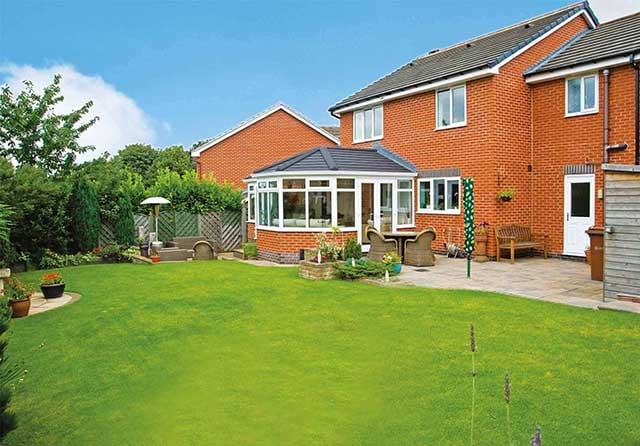If you’re looking to reduce your monthly energy bills and make a positive impact on the environment, installing solar panels is a fantastic way to improve your home.
Solar panels can reduce your reliance on the national grid, lower your monthly expenses, and enable you to power your home with clean, renewable solar energy.
If you’re ready to embrace solar power, the next step is figuring out which type of panel best suits your needs and finding a trustworthy solar panel installation partner.
In this article, we’ll explore the pros and cons of different solar panels and talk about the importance of choosing a solar panel installer you can trust.
The different types of solar panels
Many people incorrectly assume that all solar panels are the same. It's often only when you start researching your solar panel installation that you realise there's a range of options available.
For residential solar panel installations, you’ll typically have a choice of three main types of solar panel - monocrystalline, polycrystalline, and thin-film solar panels.
Each of these options comes with its own unique set of advantages and disadvantages, which we’re going to take a closer look at now, to help you make an informed decision about which is right for you.

Monocrystalline solar panels
The most popular choice for UK homeowners, monocrystalline solar panels are a common sight on rooftops and have black or dark grey appearance.
In a monocrystalline solar panel, each solar cell is manufactured from a single crystal of high-purity silicon.
This has a number of advantages, with monocrystalline panels being more efficient than other solar panels - typically converting between 18-24% of sunlight into usable electricity. Their higher efficiency means you need fewer panels to generate the energy needed to power your home.
Monocrystalline panels are also renowned for their durability and long lifespan, making them a more attractive long-term investment than other types of solar panel.
However, the increased efficiency and longevity comes with a minor trade-off, as monocrystalline solar panels often come with a slightly higher price tag compared to polycrystalline panels.
Polycrystalline solar panels
Polycrystalline solar panels offer a more budget-friendly alternative to monocrystalline panels.
The key difference between the two types of solar panel lies in their manufacturing process. Instead of being made from a single silicon crystal, polycrystalline panels are manufactured from multiple silicon fragments, which are melted together to form each solar cell.
This process gives the panels a distinctive blue hue, which is often how you can tell monocrystalline and polycrystalline panels apart.
While generally less efficient than monocrystalline panels (converting around 13-16% of sunlight into energy), they still provide a viable option for domestic solar power generation.
It’s also worth noting that polycrystalline solar panels typically have a slightly shorter lifespan than monocrystalline panels.
Thin film solar panels
Thin film solar panels differ significantly from the monocrystalline and polycrystalline installations found on many UK rooftops.
Instead of using crystallised silicon, thin film solar panels are manufactured using various photovoltaic materials - most often amorphous silicon, cadmium telluride, or copper indium gallium selenide.
This process enables thin film solar panels to be made as thin as 1 micron (0.001 millimetres!), making them incredibly flexible and lightweight.
This flexibility means that thin film panels can be easily installed on curved surfaces or steep-angled roofs where traditional mono or polycrystalline panels wouldn't be practical.
Thin film panels also tend to maintain their efficiency better in shaded conditions.
So why aren’t they used in more residential solar panel installations?
It all comes down to energy efficiency. Thin film solar panels have an energy efficiency of just 7-13% compared to that of 18-24% of a monocrystalline installation.
This essentially means you would need double the area to generate the same amount of electricity, which isn’t viable for many UK homeowners.
What type of solar panels are best for UK homeowners?
Choosing the ideal solar panels for your home depends on many different factors, such as the amount of energy you want to generate, your budget, and your available roof space.
The majority of homeowners we speak to tend to prioritise the efficiency of their solar panel installation, which is why at Projects4Roofing, we believe monocrystalline solar panels are the right choice for most UK households, and install them exclusively.

Let's recap the key advantages of monocrystalline solar panels:
- Excellent efficiency
Monocrystalline panels offer the highest energy efficiency, helping you generate more energy from your available roof space.
- Faster break-even
Their superior energy efficiency of monocrystalline panels translates to a break-even point of around 8 - 10 years, which is faster than other types of panels.
- Significant savings
It’s estimated that the most efficient solar panels can reduce your energy costs by an average of 64%.
- Improved aesthetics
The sleek appearance of monocrystalline panels makes your roof look modern and visually appealing.
Projects4Roofing: A solar panel installation partner you can trust
A solar panel installation is one of the most effective ways to be more environmentally responsible, reduce your carbon footprint and reliance on the national grid, and save money on your monthly energy bills.
A monocrystalline solar panel installation gives you the best opportunity to break even in the shortest amount of time.
But it’s important to choose the right solar panel installation partner to ensure you’re getting the optimum benefit from your installation.
At Projects4Roofing, we have more than a decade of experience in roofing projects, hundreds of happy customers, and a Which? Trusted Trader accreditation - meaning we’re a company you can trust.
If you’re interested in finding out more about installing solar panels to your home, please just drop us an email or give our team a call.
We’ll answer any questions you have, and help ensure you choose the right solar panel installation to meet your specific needs.


